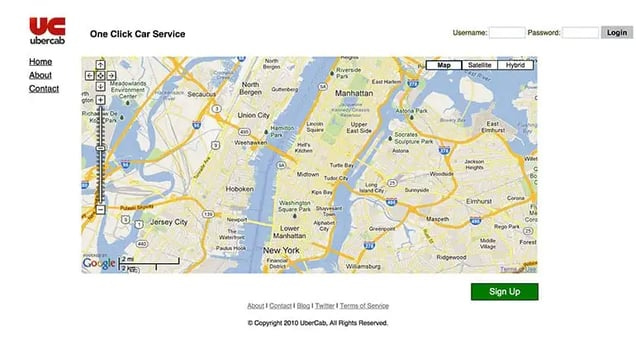Launching Imperfectly
In startups, there can be an immense pressure to launch with a perfectly polished product; feature-complete, bug-free, and ready to dazzle. Yet, this pursuit of perfection can be a trap, delaying crucial learning and potentially leading development down the wrong path. The contrarian view, embedded in the Silicon Valley startup ethos, champions a different approach, famously articulated by LinkedIn co-founder Reid Hoffman:
“If you are not embarrassed by the first version of your product, you’ve launched too late.”
Hoffman's quote isn’t just about accepting flaws; it's about prioritizing speed of learning over initial polish. This mindset is heavily promoted by influential institutions like Y Combinator, which consistently advises startups to launch quickly with a Minimum Viable Product. An MVP is the simplest version of a product that can be released to deliver core value to early adopters and gather essential feedback for future development.
Today, I'm consciously embracing this philosophy and am myself launching embarrassingly early with a MVP!
Introducing Knuman
With great embarrassment (and excitement!) allow me to share my very unpolished and incomplete project: Knuman, an AI assistant for families. Play with it here:
The idea of Knuman was born out of my own challenges as a parent and husband. Everyday, I feel like I’m on the edge of failure because it feels like I’m juggling a million things just to keep my family from going off the rails:
Finance: bills, investments, retirement, 529 plans, mortgages, home improvement, estate planning
Education: school, teachers, other parents, IEPs, therapy, extracurriculars, events, PTO, fundraising
Healthcare: hospitals, doctors, insurance, specialty care, lab results, medication, immunizations
Marriage: being a good husband, learning to communicate, strengthening our relationship
Relatives: holidays, gifts, taking care of our parents, being a good son/father/uncle
Fun: travel, restaurants, getting our kids outdoors, making/having friends
Personal: getting/staying healthy, growing as a human, finding peace
Work: balance/productivity, networking, developing skills, career growth
If this just sounds like I'm describing adulthood, you'd be right–I am. But adulting is hard, especially when you 1) have a family and 2) are disorganized and procrastinate like me. So, with Knuman I'm hoping to get some help with these things. Obviously, it won't solve all my problems from day one, but little by little I hope it can help make our lives a little easier by chipping away at things I'm bad at but that AI/software is really great at. And if it can help me, then I think it might be able to help other parents as well.
The foundation of Knuman, which is the first thing I built, is an assistant with memory. I started here because, although I use AI everyday, I have to constantly remind it of my specific context. Things as simple as the fact that I have children (so it can make family-friendly recommendations), or our future plans (so it can help us research retirement strategies and new cities to live in), or my family's medical conditions (so it can help us understand our healthcare needs). To be effective, and easy to use, AI needs to be personalized. Hence, Knuman is, at its foundation, an assistant with memory.
If this resonates with you, please give Knuman a shot and tell me where it should go next. Expect it to be clunky and glitchy, but I promise I’ll keep working to make it better and more useful!
Humble Beginnings
Launching something so raw might seem like a huge mistake, but even the most successful companies today started from a humble MVP. Success doesn’t come from a dazzling launch, rather it is achieved by continually and relentlessly improving one’s product iteratively. Let’s have some fun and take a stroll down memory lane to look at some of them and how they started.
Amazon
Founded by Jeff Bezos
Launched July 1995
Currently valued at ~$1.8T (market cap)
Initially launched as an online bookstore with a very basic website
Their original site was truly humble. But to be fair, Amazon was pre-dotcom bust, an era where the internet was full of badly designed sites and web technology was in its infancy. How far they have come in 31 years!
YouTube
Founded by Chad Hurley, Steve Chen, and Jawed Karim
Launched May 2005
Unknown valuation; currently contributes to 10%+ of Alphabet’s revenue (market cap ~$1.9T)
Initially launched as a way to easily to upload, share, and watch user-generated videos
Youtube has evolved greatly since, but the core product has mostly stayed true to the original positioning. MySpace was a key contributor to their growth when social media was young and video was not yet a thing (at least not easily accessible).
Twitter/X
Founded by Jack Dorsey, Noah Glass, Biz Stone, and Evan Williams
Launched July 2006
Acquired by xAI for $33B
Initially launched as a simple SMS-based platform for broadcasting short status updates
Twitter is a great example of a simple idea that could be very rapidly and cheaply tested with an MVP, at least with today’s tools at our disposal.
Airbnb
Founded by Brian Chesky, Joe Gebbia, and Nathan Blecharczyk
Launched March 2008
Currently valued at ~$68B (market cap)
Initially launched as “AirBed & Breakfast”, a solution for event attendees needing accommodation when hotels were sold out
The most “beautiful” MVP thanks to the design DNA from the founders. Over the years they evolved into the general platform for alternative accommodations you know today. I love that they keep this screenshot on their About Us page.
Uber
Founded by Garrett Camp and Travis Kalanick
Launched “late” 2009
Currently valued at ~$139B (market cap)
Initially launched as "UberCab," a niche service allowing users to request premium black car rides via web or SMS in San Francisco
My alma mater (2014-2018) also started very focused and around the time marketplaces proliferated as a business model. They took some time from founding to initial launch, but they definitely didn’t wait for it to be perfect.
Iterate, Iterate, Iterate
Following in the footsteps of these great companies I admire, I’m launching Knuman simply as an AI assistant for families. The hypothesis to test is that families face complex problems that AI is really great at solving, and I think there’s something very big and interesting to be built here. Behind that is memory, which I believe is one of the key unlocks for AI.
Long term, my mission will stay focused on helping families, but how it looks or works as a product might change a lot, which I’m very open to. While it’s super janky right now, I’m going to keep seeking feedback and iterating to make it deliver real value to parents like myself. I think it’s this iteration that really matters, moving forward by inches until finally hitting product market fit.
On my journey, here are some of the things I’m looking to learn:
UI/UX: Is text the right UI? Should it be audio? Do people prefer buttons instead? Should we have AI in our ear like on Her? Or in our car?
Networks: Are people tired of social networking? Is family the core of our real life social network? How would interactions differ if it were a trusted network like family?
Automation: How do normal people get things done in real life? Are phones and email the key interfaces to integrate with? Will it eventually be AIs talking to AIs?
Cost: AI is getting better and cheaper–what will be worth paying for? Should AI be a fundamental human right and will the government subsidize it for everyone? Will normal people have an in-home AI hub?
Use cases: What painful problems would AI be the best at solving? What would it take for your ordinary consumer to incorporate AI into their daily lives?
Lately, I’ve been watching people in this cultural movement of “building in public,” some of whom are professionals moonlighting while others are solopreneurs carving out an alternative path. Regardless, it’s really exciting to watch so many people building cool things and I think I’ll join in. Watch for updates going forward!
In the mean time, check out Knuman and let me know what you think!









